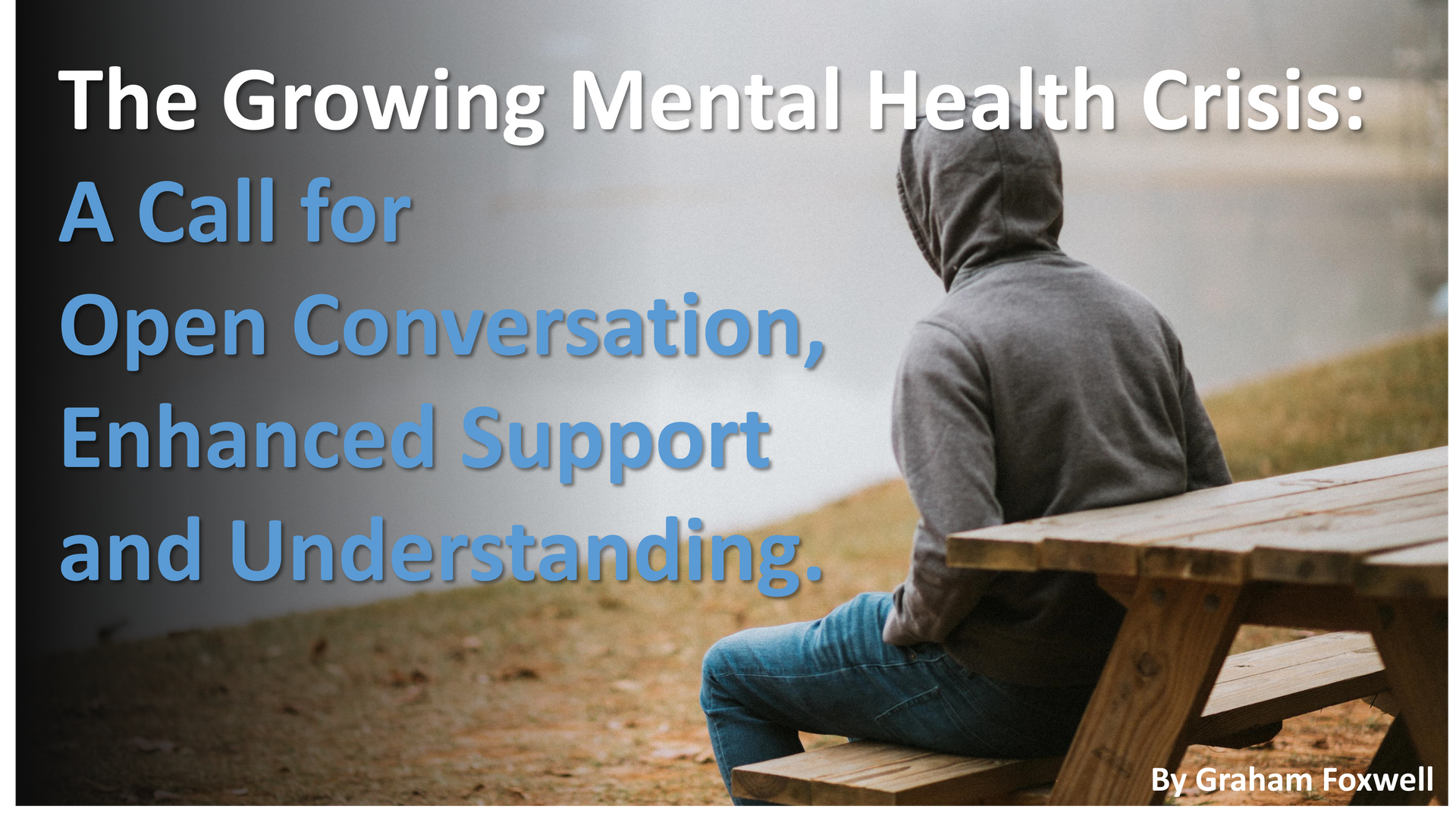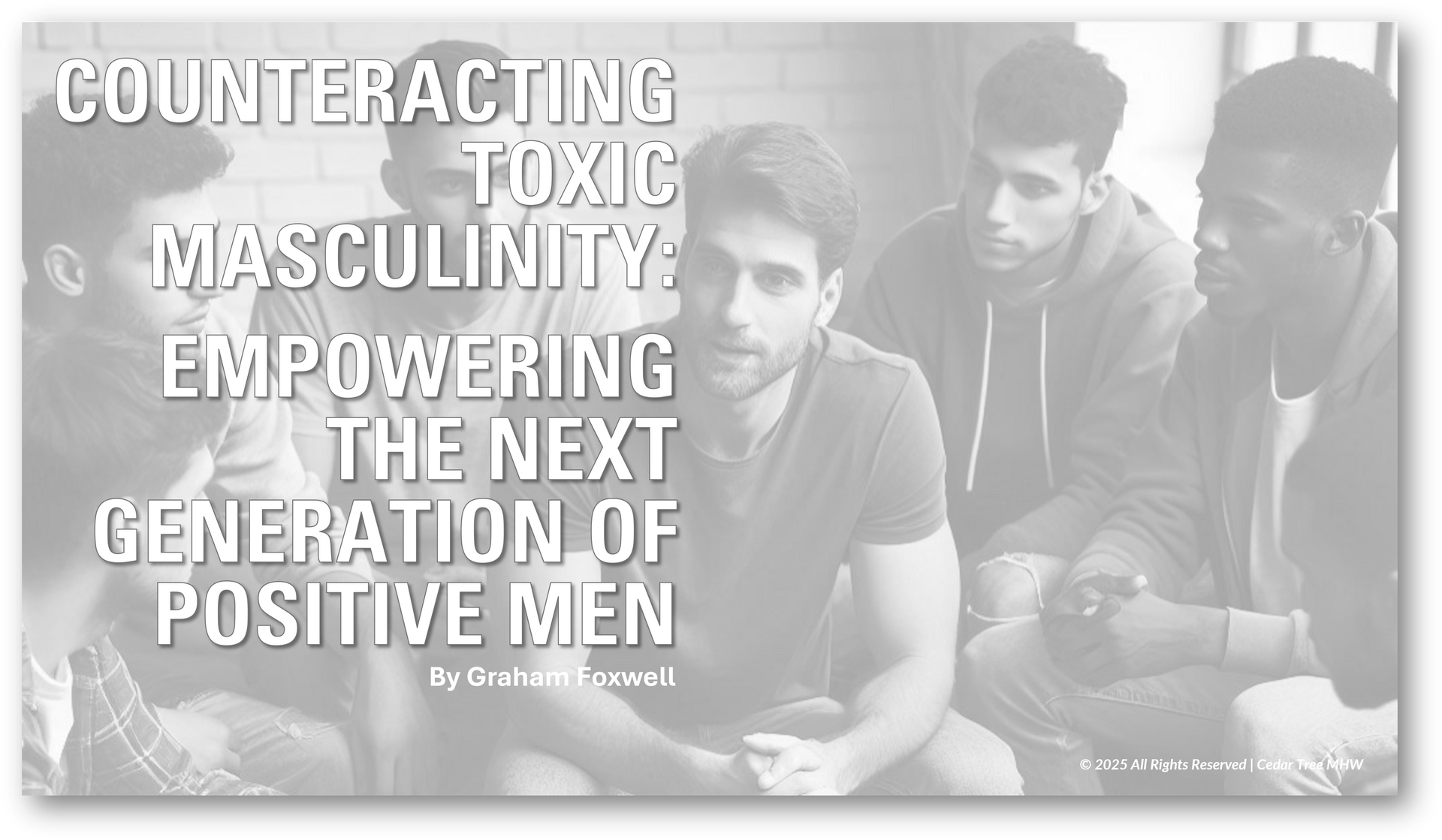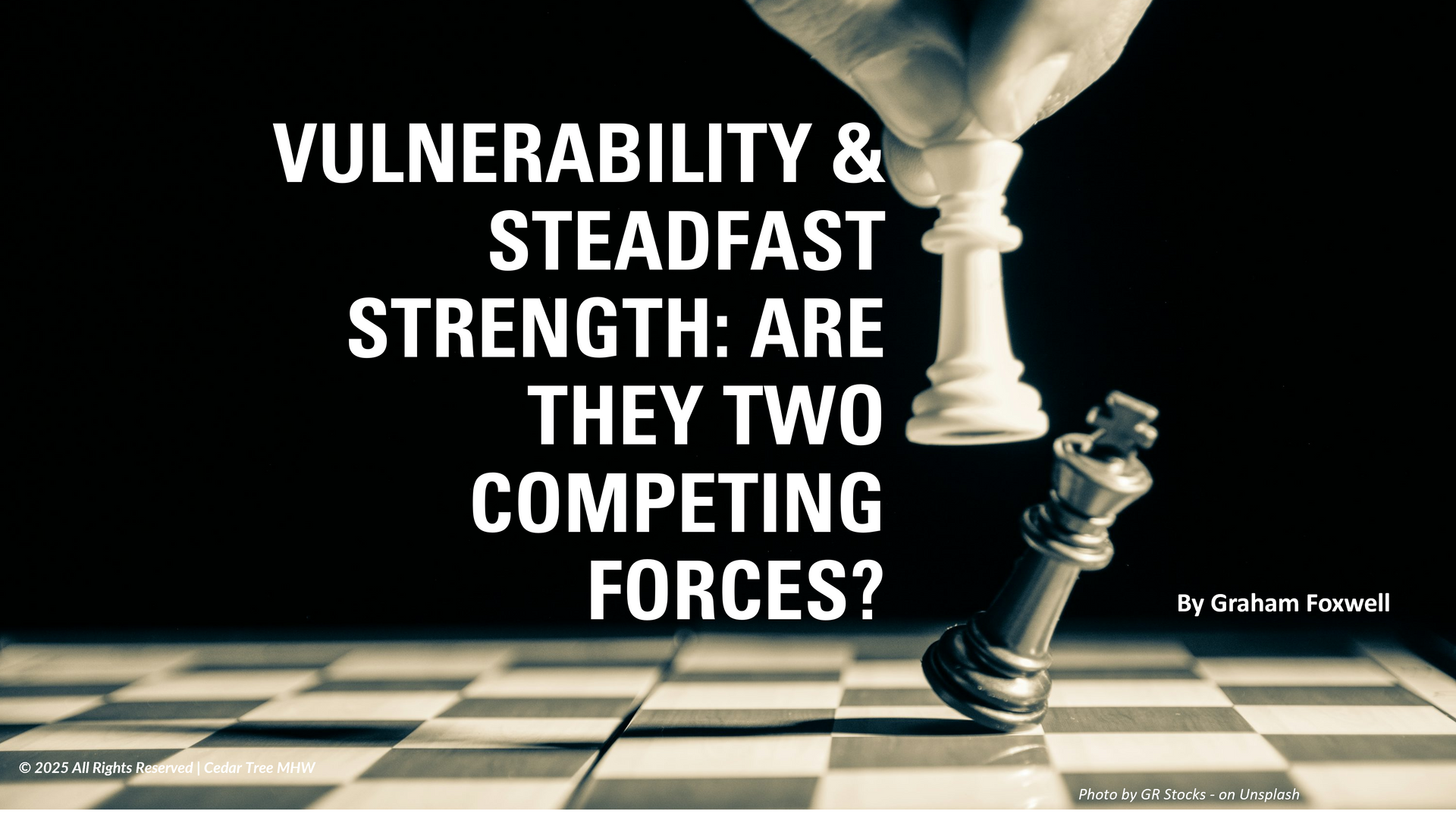The Growing Mental Health Crisis: A Call for Open Conversation, Enhanced Support and Understanding.

Before I start, I want you to know, these are just my thoughts and observations, and not to be taken as a great study. I would love to hear your thoughts and views on this.
In recent years, mental health has come to the forefront of public view, with increasing awareness and acceptance. However, despite this progress, the mental health crisis appears to be escalating. In this blog, I want to explore key questions surrounding this issue and re-emphasise the importance of talking about mental health, providing more support, and eliminating stigma.
Does the Crisis Seem Larger Because We Are Talking About It More?
I'm wondering if the perceived increase in mental health issues is simply due to more conversations and focus on the topic. A bit like when you want to buy a new car… Go with me on this… You decide on the car you want, read all about it, and then suddenly, you see them everywhere!
With greater awareness and acceptance, I believe people are more likely to recognise and report their struggles. This visibility can create the impression that more individuals are experiencing poor mental health when, in reality, we are just more attuned to the problem. While this increased awareness is a positive step, it also highlights the need for adequate resources and support systems to address the growing demand for mental health services.
Why Is There an Increasing Mental Health Crisis Despite Greater Awareness and Acceptance?
Despite the strides made in promoting mental health awareness and acceptance, the crisis continues to worsen. Several factors contribute to this contradiction.
This is a very simplified explanation, but for the sake of keeping it concise: The fast-paced and high-pressure nature of modern life, economic uncertainties, social isolation, and the impact of social media can all exacerbate mental health issues. Moreover, the COVID-19 pandemic has intensified these challenges, leading to increased anxiety, depression, and other mental health conditions.
Recognising that awareness alone is not enough, we must translate this awareness into concrete actions to provide decent and timely support to those in need.
Are Some People Becoming Indifferent to Mental Health Issues?
I also have a concern that some individuals may view mental health and wellbeing as just another trend or an excuse for certain behaviours. This scepticism can undermine genuine efforts to address mental health issues and discourage those struggling from seeking help.
To combat this, it is essential to foster a culture of empathy and understanding, emphasising that mental health is a critical aspect of overall wellbeing. I know many people struggling with the stuff I share on social media and talks that I do. By sharing personal stories and promoting open dialogue, we can help dispel misconceptions and encourage a supportive environment.
The Need for More Funding, Help, and Support
I firmly believe that the root of the mental health crisis stems from the lack of sufficient funding, help, support, and therapy available. Whether from the private or public sector, including the NHS, there is an urgent need for greater investment in mental health services.
This should encompass expanding access to affordable or free therapy, eliminating the horrendous and life-threatening waiting times, providing more training for mental health professionals, and offering comprehensive support for those affected by mental health issues. By addressing these gaps, we can make significant progress in tackling the crisis and improving the lives of countless individuals.
The Importance of Mental Health and Wellbeing Provision in the Workplace
I also strongly believe in the importance of Mental Health and Wellbeing Provision in the Workplace. Mental health and wellbeing are not just personal issues; they are also critical components of a healthy, productive workplace. Employers have a responsibility to create environments that support mental health, offering resources such as Employee Assistance Programs (EAPs), mental health days, flexible working arrangements, and access to counselling services. Senior leadership support and belief are vital in championing these initiatives, as their commitment sets the tone for the entire organisation and underscores the importance of mental health.
A proactive approach to mental health in the workplace can lead to reduced absenteeism, increased employee satisfaction, and overall better job performance. By prioritising mental health, employers can foster a more supportive and inclusive work culture.
If you are interested in what Cedar Tree can offer for Mental Health in the Workplace - Click Here
Conclusion
The increasing mental health crisis is a complex and multifaceted issue that requires a concerted effort to address. By continuing to talk openly about mental health, providing more support and resources, and eliminating the stigma surrounding mental health issues, we can make a difference. It is time to move beyond awareness and take concrete actions to support those in need and create a society where mental health and wellbeing are prioritised and valued.
Lastly, I understand that some of you might still be unconvinced about the importance of mental health because you've never experienced poor mental health or a severe mental illness. Perhaps you've faced mental health challenges and managed them well. However, for those who may not fully grasp what it's like to struggle with mental health, I encourage you to develop more understanding and empathy through discussion and education. Imagine trying to understand the pain of a broken leg if you've never had one yourself. Just because you can't see or fully comprehend someone's mental health struggle doesn't make it any less real. It's essential to recognise that not everyone experiences, comprehends, or copes with life the same way. We are all different, with unique skills and abilities. By acknowledging these differences and fostering empathy, we can create a more supportive and compassionate environment for everyone.
Let's strive to offer more compassion and support for one another, recognising that mental health is just as important as physical health. Together, we can make a significant difference in the lives of those struggling with mental health issues. Your support and understanding can be the beacon of hope someone desperately needs.
Thank you for reading this.
Graham










